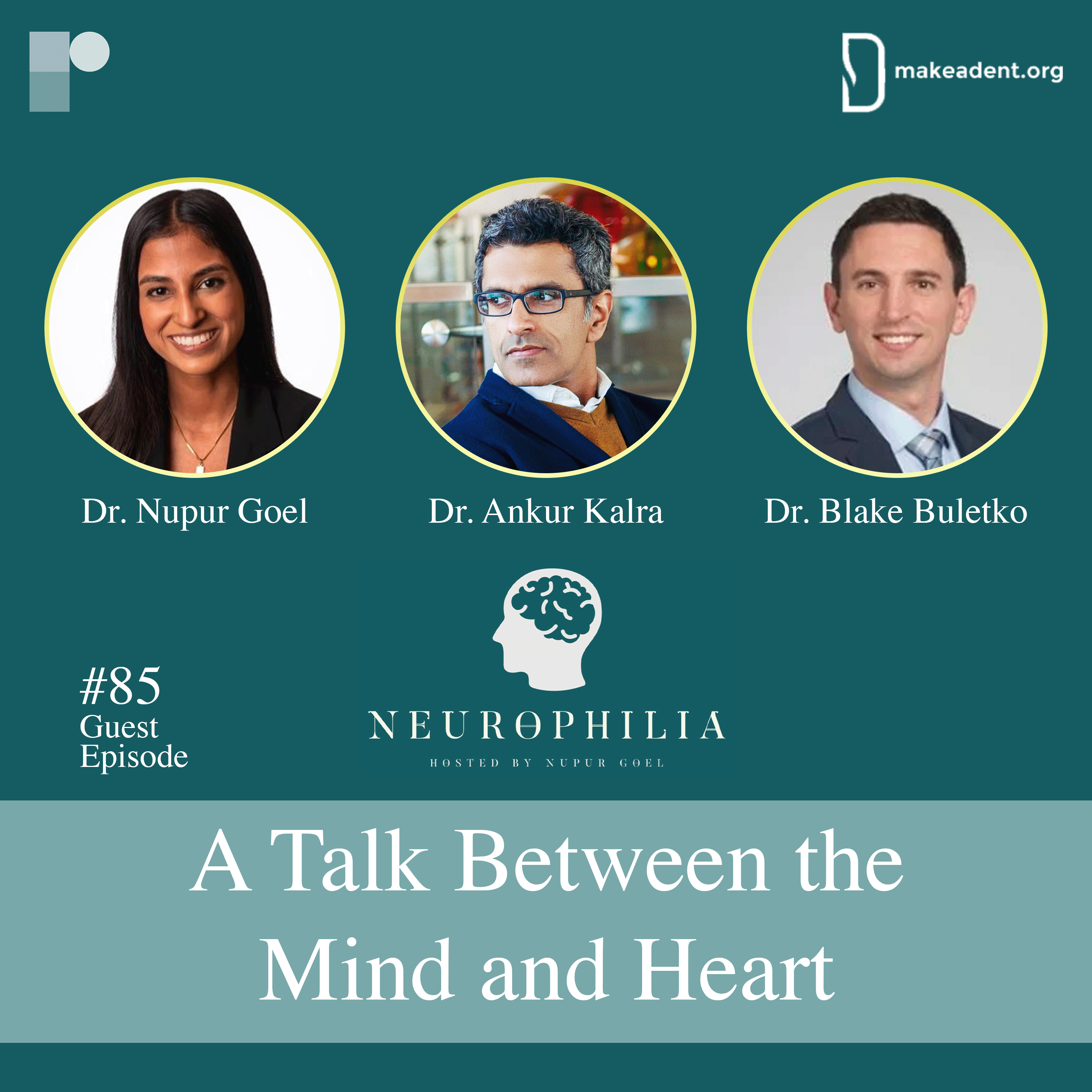
Parallax features a guest episode from the new podcast Neurophilia by Nupur Goel.
Do you think and act with your mind or heart? How about both?
Neurocardiology refers to the intersection between the fields of neurology and cardiology. The mind and heart are deeply interconnected in terms of anatomy, physiology, and various pathologic states.
This episode features a vascular neurologist and an interventional cardiologist who will discuss the relationship between their two fields of medicine.
Dr. Blake Buletko is a vascular neurologist at the Cleveland Clinic. He completed his residency and fellowship training at the Cleveland Clinic and was the former medical director of their mobile stroke program. In addition to his clinical responsibilities, Dr. Buletko serves as an Assistant Professor at the Cleveland Clinic Lerner College of Medicine of Case Western Reserve University and is the current Program Director of the Adult Neurology Residency program for the Cleveland Clinic.
Dr. Ankur Kalra is an interventional cardiologist, and founder of the non-profit startup, makeadent.org. He is director of Barry J. Maron Hypertrophic Cardiomyopathy Center in New Delhi, India. He is also the host of the cardiology podcast show, Parallax. He has presented late-breaking science at national and international scientific cardiovascular meetings, and has published over 250 scientific manuscripts in various peer-reviewed journals. His past appointments include interventional cardiologist, associate professor, and medical director of clinical research for regional cardiovascular medicine at the Cleveland Clinic.
Check out the Neurophilia podcast by Dr Nupur Goel: podcasts.apple.com/gb/podcast/neur…ia/id1654775116

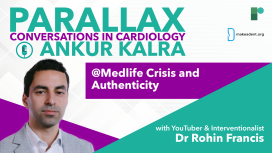
Rohin shares an advice that he received at the beginning of his career: “If you can deal with an average day, the exciting day will take care of itself.”
Ankur asks Rohin about Medlife Crisis and the work that goes into producing a show followed by 500K people. Rohin reiterates his passion for research and science communication. Ankur and Rohin discuss what it means to be yourself on social media and what is Rohin’s advice to our early-career listeners.
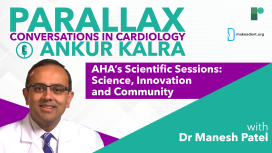
In this information-packed episode, Dr Patel takes us behind the scenes and talks about the work that goes into the curation of the programme and the considerations that shape the event. Dr Kalra asks Dr Patel about his highlights over the years and the movement and changes that he observed as vice chair and chair of the event. Dr Patel elaborates on the key late-breaking science trials in 2022. Dr Kalra and Dr Patel discuss the grading system of the award applications and share some useful information with our listeners.
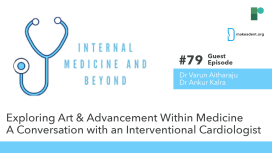
Exploring Art & Advancement Within Medicine - A Conversation with an Interventional Cardiologist.
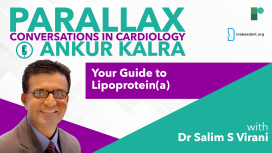
Dr. Ankur Kalra invites Dr Salim S Virani to help simplify the concept of Lp(a) with answering key questions about its measurement and its place in practice and prevention.
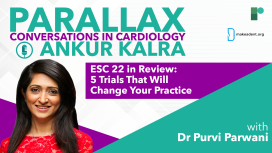
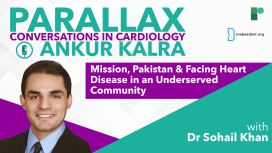
Dr Khan talks about education in the US and his decision to move back to Pakistan. Ankur asks Sohail about his new professional home: NICVD, a free clinic providing primary heartcare for Pakistanis. They discuss some of the innovations Dr Khan works on to improve patient care that utilise simple but effective interventions. We learn more about free screening clinics and about Dr Khan’s work on the largest ever study in Pakistan on association of Lpa and CV disease in South Asians.
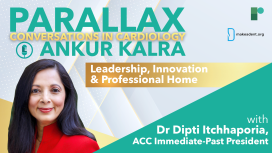
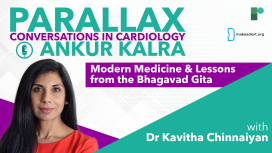
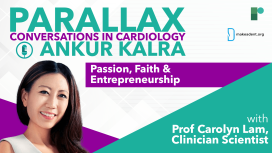
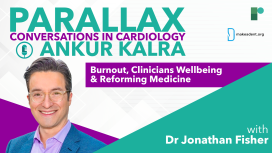

Parallax’s guest this week is Dr Eric David Adler, Medical director of heart transplant and mechanical circulatory support at UC San Diego Health.

How did Dr Gragossian receive her diagnosis? How does she feel about her new reality? What drives her? What is her message to our listeners?

Just after 9/11, Heval, the 18-year-old Syrian Kurdish refugee found a job as a dishwasher. At this point, he was the sole provider of his family. The pressure that comes from being poor did not leave him for many years. Today, he is firm believer in giving back to underserved communities by spreading awareness within the medical community. As he says, well-meaning people of privilege are sometimes afraid to act. What we need is more people to bridge the gap and find ways to help each other.

What drives Dr Nishtha Sodhi? What were the formative moments of Dr Sodhi’s career? What are the new frontiers of cardiology?






